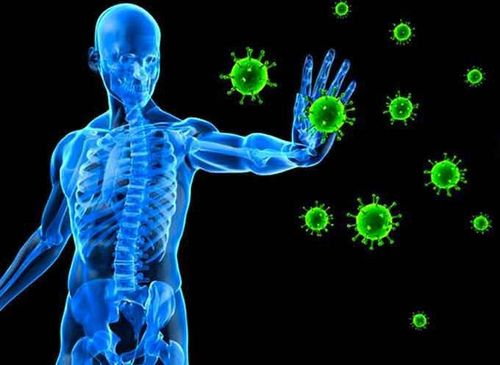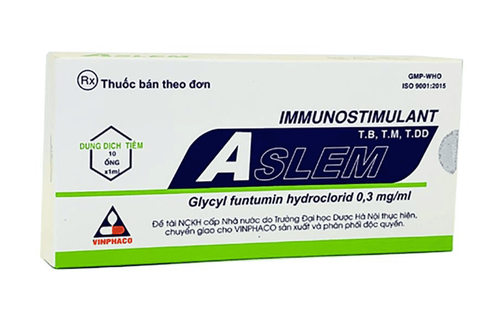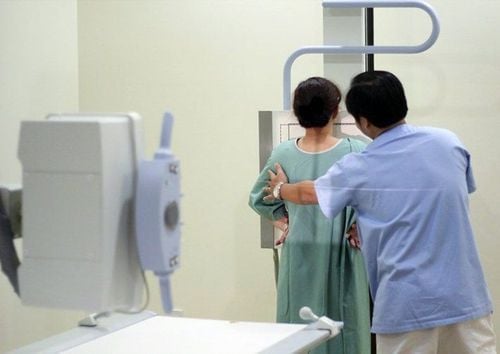This is an automatically translated article.
The role of the immune system is to keep people healthy and prevent disease and infection. When the body's immune system has abnormal problems, it will lead to a number of diseases related to the immune system and resistance.1. The body's immune system
What is the English Immune System? The term "Immune System" in English means "immune system" - a system made up of a network of special cells, proteins, tissues and organs. They work together to protect people against the germs and microorganisms present in everyday life. One of the key cells of the immune system is the white blood cell, which consists of two basic types that work together to seek out and destroy infectious organisms - harmful "invaders" to health. . The immune system attacks pathogens in the human body through a series of steps known as the immune response.
Unlike the nervous system, the body's immune system is more complex and is located all over the body, including:
Throat tonsils Digestive system Bone marrow Skin Lymph nodes Spleen Thin inner lining Nose, throat and genitals The scattered distribution in many locations helps the immune system to form and store cells, as well as maintain a continuous operation to keep the whole body healthy.

2. The role of the immune system
2.1. Protects the body from infection The immune system is the body's natural defense system. Meanwhile, the “invaders” that make people sick include bacteria, viruses, parasites, and even fungi. They are present everywhere such as in homes, workplaces and natural environments. The immune response is as follows:
Step 1: A healthy immune system protects people by creating a barrier that prevents foreign pathogens or antigens from entering the body. Step 2: If they can break through the barrier, the immune system continues to produce white blood cells, as well as other chemicals and proteins, to attack and destroy these potentially harmful foreign elements. The immune system will do whatever it takes to find and eliminate antigens before they begin to divide. Step 3: In case of failure, the body's defense system works even harder to hold back and not let pathogens develop. The immune system can recognize millions of different antigens and will exert all its necessary functions to eliminate most invading pathogens. If functioning properly, this complex defense system can stave off health problems ranging from the common cold to dangerous cancers.
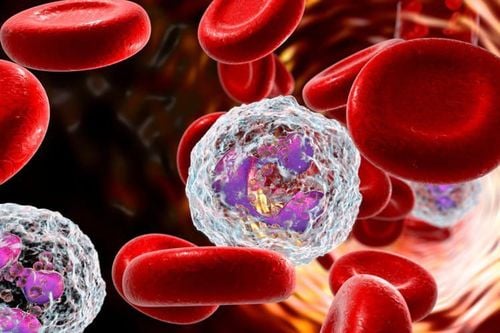
2.2. Create antibodies to fight old diseases again Humans are born with a certain level of immunity and resistance, but these improve over time. When children have frequent colds, the immune system creates a "bank" of antibodies the first time they are exposed to the disease and builds up resistance to them in the future. Bringing weakened pathogens into the body to facilitate the immune system to win, create antibodies and prevent disease recurrence is also how vaccines work.
However, the immune system becomes less effective as people age. Immunodeficiency can make them weaker and more susceptible to diseases, commonly arthritis and even certain types of cancer.
Trắc nghiệm: Bài kiểm tra chỉ số trí tuệ cảm xúc (EQ) của bạn
Chỉ số trí tuệ cảm xúc Emotional Quotient (EQ) là một chỉ số dùng để nói lên trí tưởng tượng, đánh giá và cảm xúc của một con người. Hãy làm bài trắc nghiệm sau để biết chỉ số EQ của bạn là bao nhiêu?
Nguồn tham khảo: webmd.com
3. Importance of the immune system
When the body's immune system is weakened, bacteria, viruses and toxins can attack humans, thereby leading to a number of diseases.Allergies and hypersensitivity to certain substances are believed to be caused by disorders of the immune system. At this time, the faulty immune system will automatically fight against elements that are not too dangerous, such as pollen or animal hair, making the body more sensitive when exposed to them.
In addition, the immune system also plays a major role in the rejection process in patients undergoing transplant surgery to replace tissues or organs. Immune disorders also cause other diseases, such as:
Autoimmune diseases: Juvenile diabetes, rheumatoid arthritis and anemia Immunodeficiency diseases: HIV/AIDS (syndrome) human acquired immunodeficiency) and severe combined immunodeficiency SCID
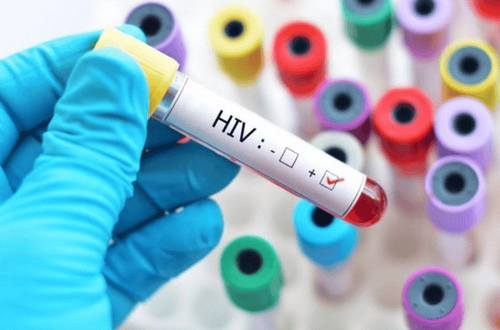
4. Maintain a healthy immune system
There are no drugs or supplements that work to strengthen the immune system. Instead, healthy living habits can help improve the function of the immune system, namely:
Exercise: Being inactive not only makes the body feel sluggish, but also weakens the system. immunity and resistance. In contrast, just gentle exercise, such as a brisk walk, also helps stimulate white blood cells to work better, releasing the hormone endorphin that has the ability to reduce pain, reduce stress and sleep better. thereby improving immunity.
Eat healthy: Being overweight drags down a person's health and immune system. Therefore, proper nutrition plays an important role in helping the immune system and resistance to work properly. Besides vegetables and fruits rich in vitamins and antioxidants, garlic and some mushrooms also have antibiotic and resistance-enhancing effects.

Get enough sleep: Sleep helps prevent cells from being damaged and weakened. Lack of sleep makes the body tired and more susceptible to disease. A deep and sufficient sleep is considered a great medicine for the human body.
Stress management: When stressed, the body releases hormones like cortisol and adrenaline that weaken the immune system. Long-term stress makes people more susceptible to common to more serious diseases, including heart disease and high blood pressure. Practicing meditation or yoga is a way to reduce stress, improve health, and improve quality of life.
Do not abuse alcohol and drugs: Drinking alcohol in certain amounts can have health benefits. But if you abuse alcohol and stimulants, it will inhibit the function of white blood cells, reduce resistance and weaken the body's immune system.
Live happily: People who have a good spiritual life with good friendship and love tend to be healthier. One study found that levels of a protein in the immune system, called immunoglobulin A (IgA), are higher in healthy, regular sexually active adults. Living a happy life will support the immune system by reducing stress and improving sleep, comprehensively protecting the body from diseases naturally without resorting to any drugs.
In short, the role of the immune system is to carry out rapid and specialized responses to protect the body against foreign pathogens. The body's resistance to the common cold to some serious illnesses shows the importance of the immune system. Although disorders related to the immune system and resistance are often difficult to prevent, people can still build a stronger immune system through a scientific lifestyle and close cooperation with doctor if sick.
Please dial HOTLINE for more information or register for an appointment HERE. Download MyVinmec app to make appointments faster and to manage your bookings easily.
References: Kidshealth.org, Stanfordchildrens.org, Webmd.com



